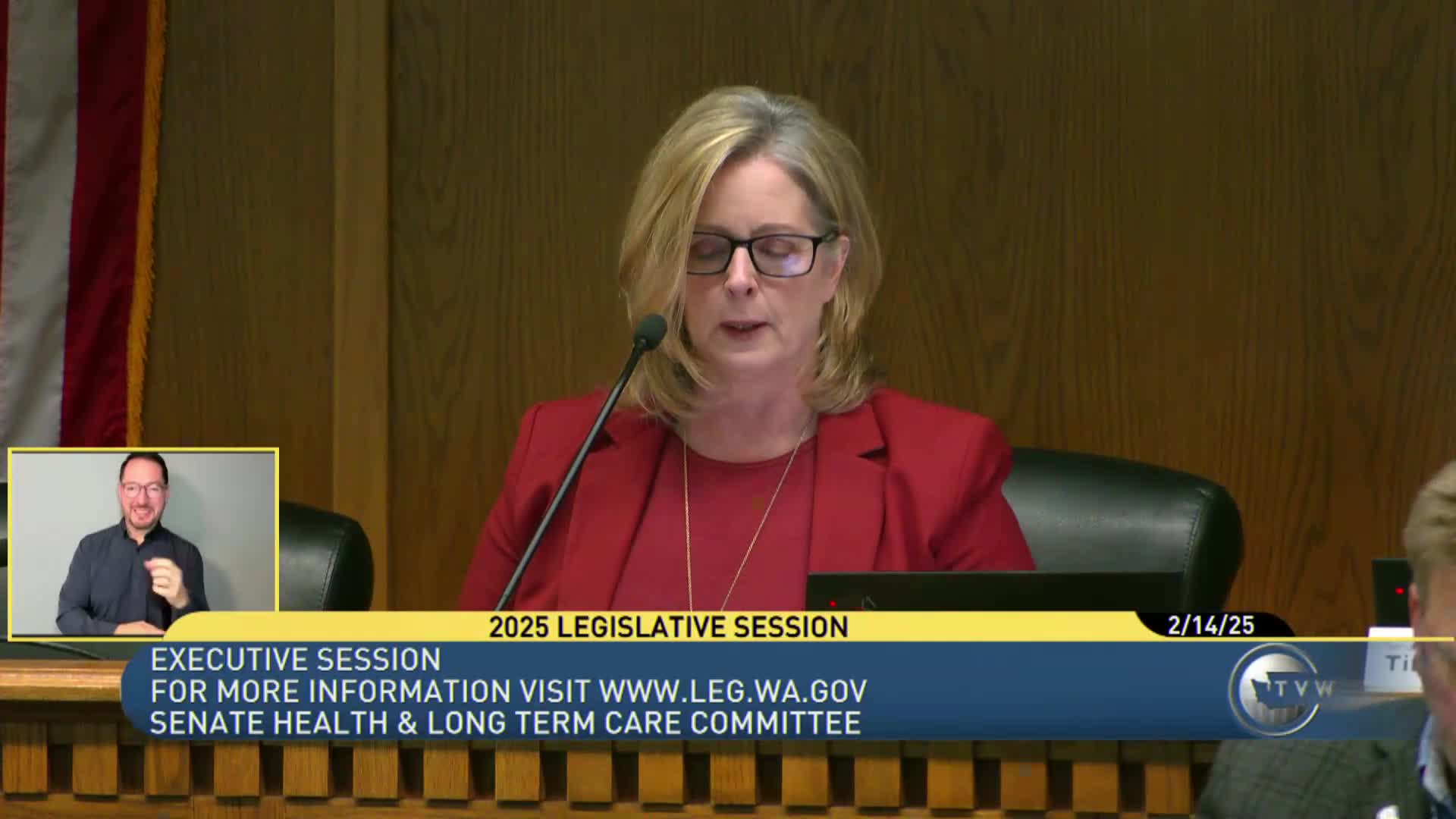Article not found
This article is no longer available. But don't worry—we've gathered other articles that discuss the same topic.
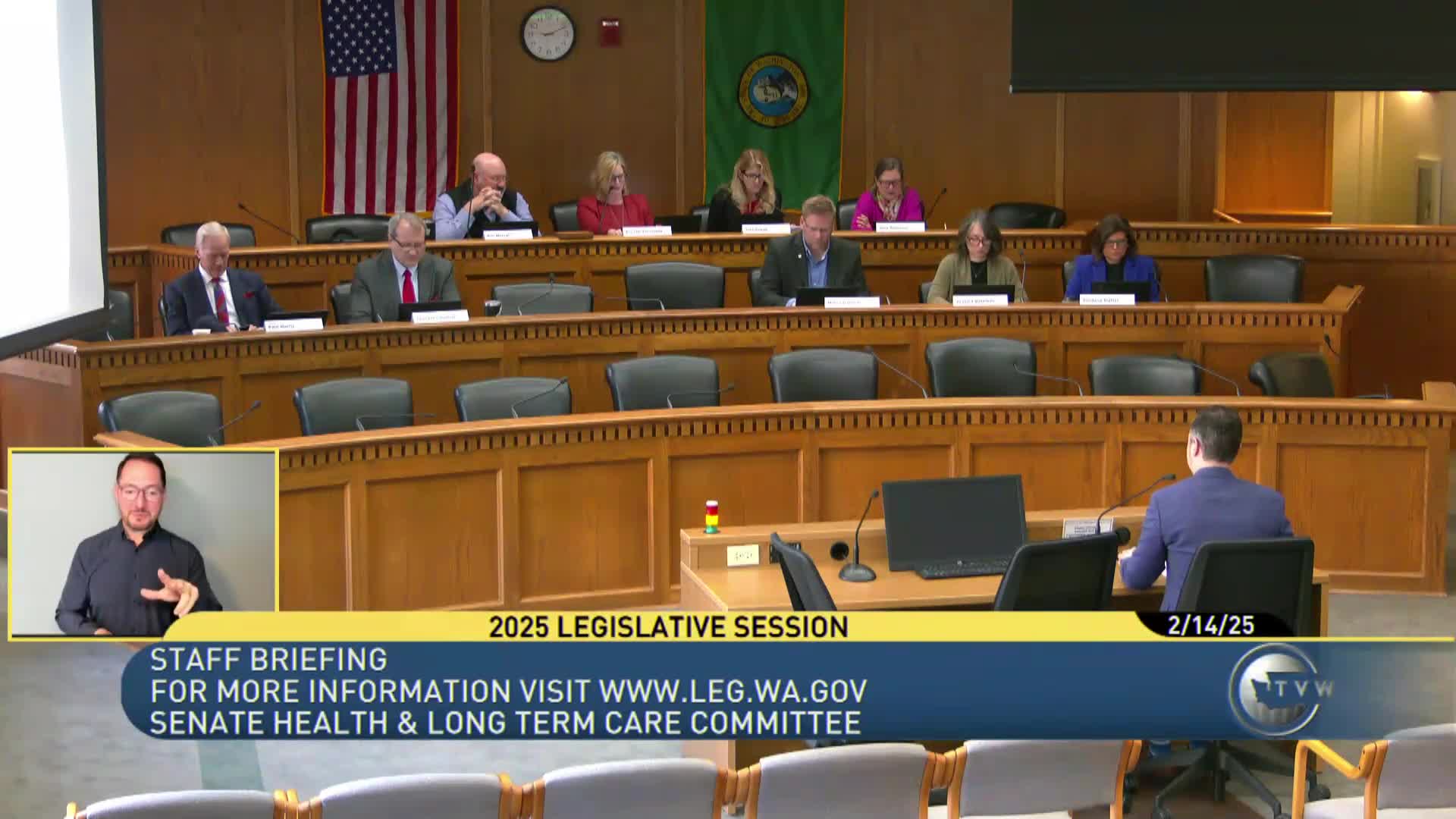
Long, divided hearing on bill to ban flavored tobacco and menthol products draws wide testimony
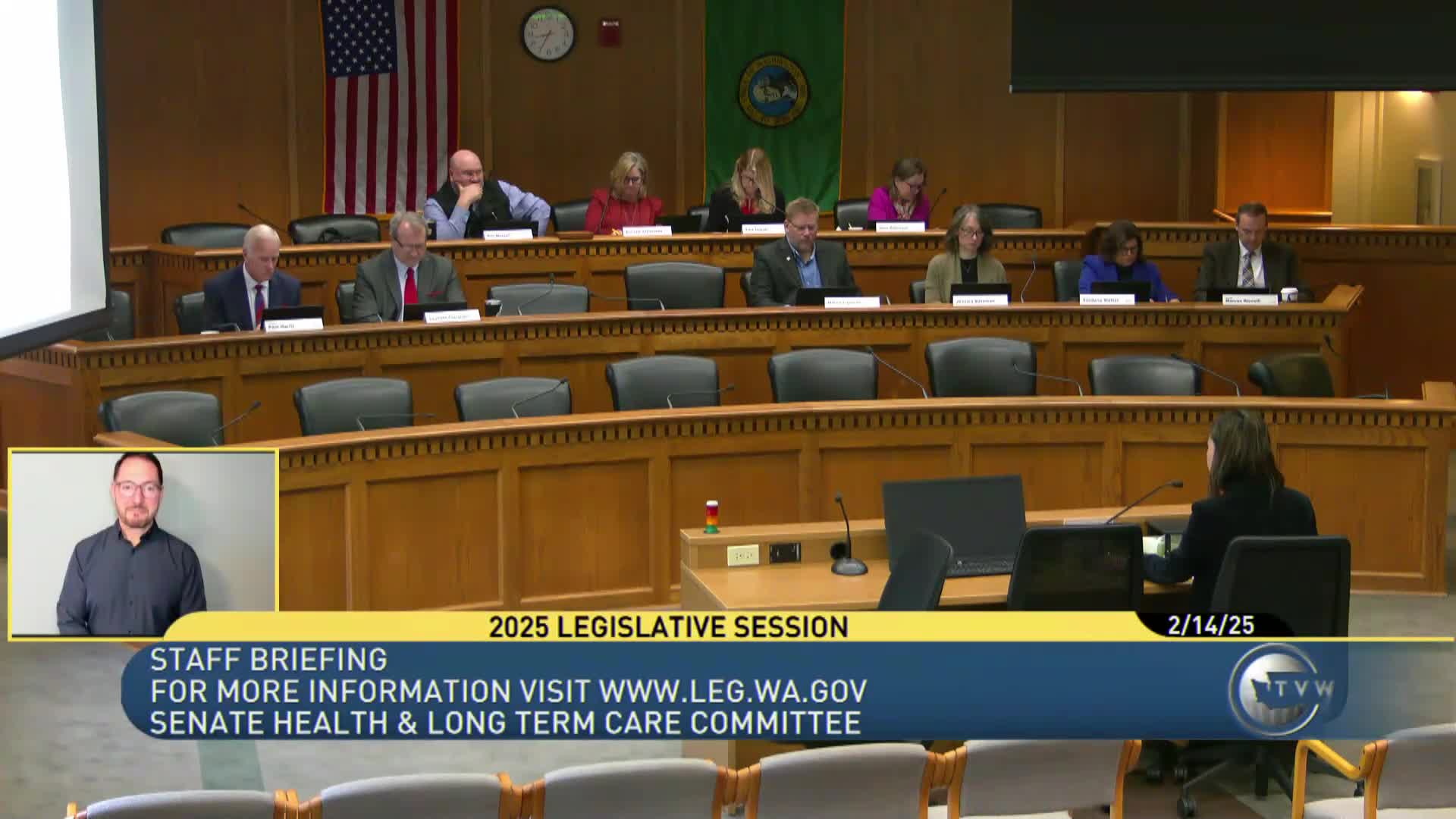
Panel considers changes to governance and administration of Andy Hill Cancer Research Endowment
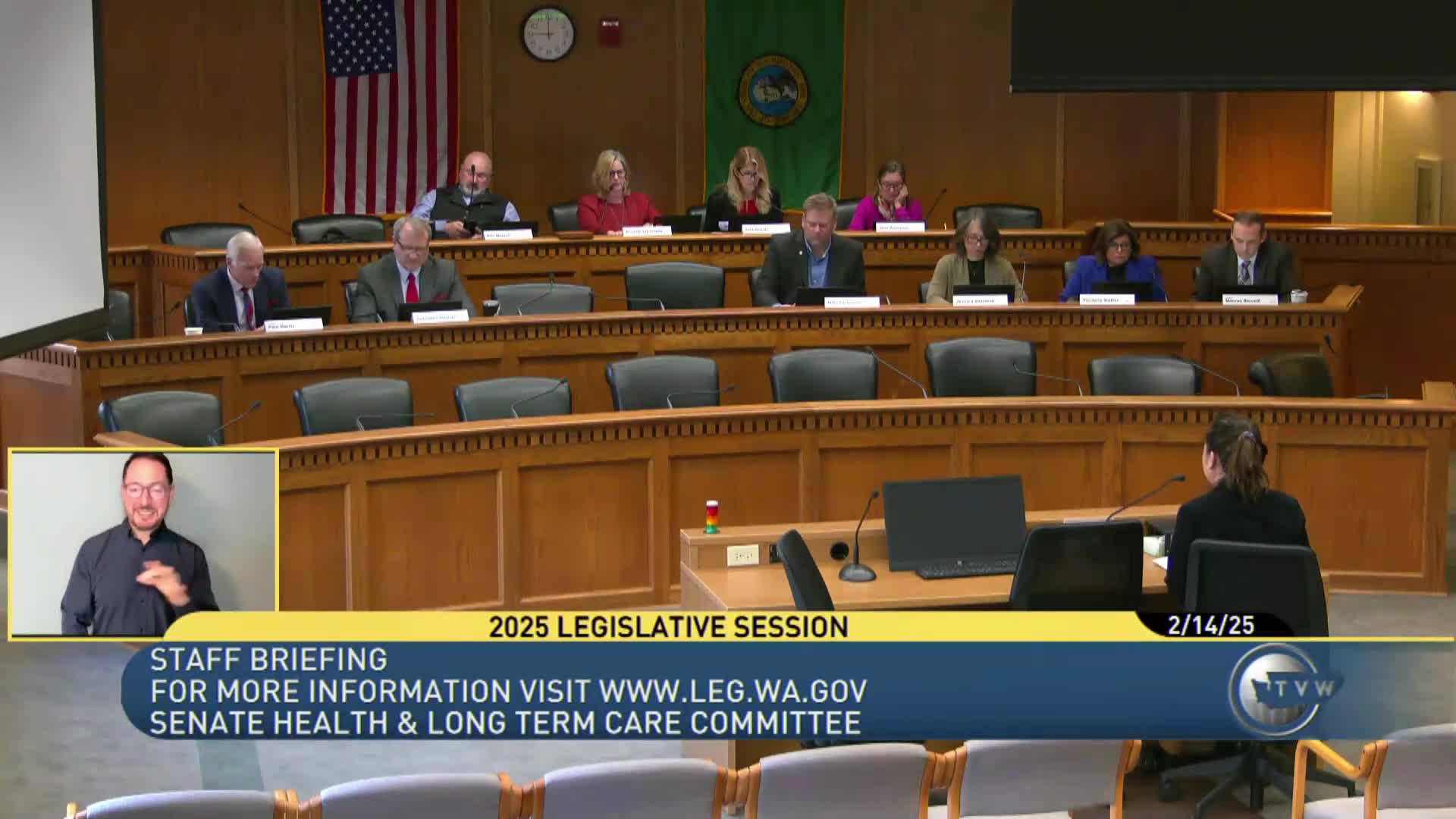
Committee hears bill to add massage therapy as Medicaid pain-management option
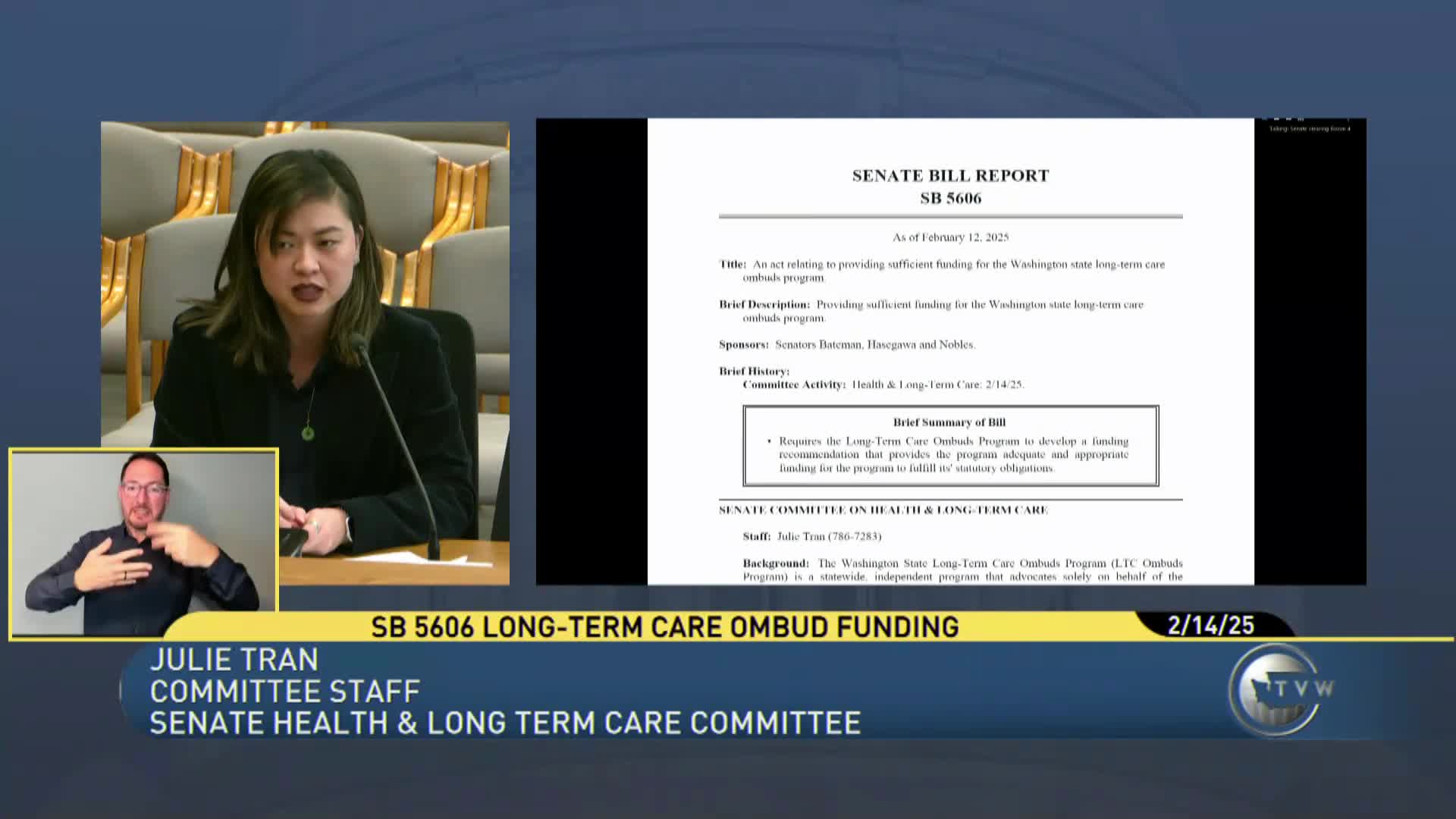
Bill would require Commerce to recommend sustainable funding for Washington long-term care ombuds program
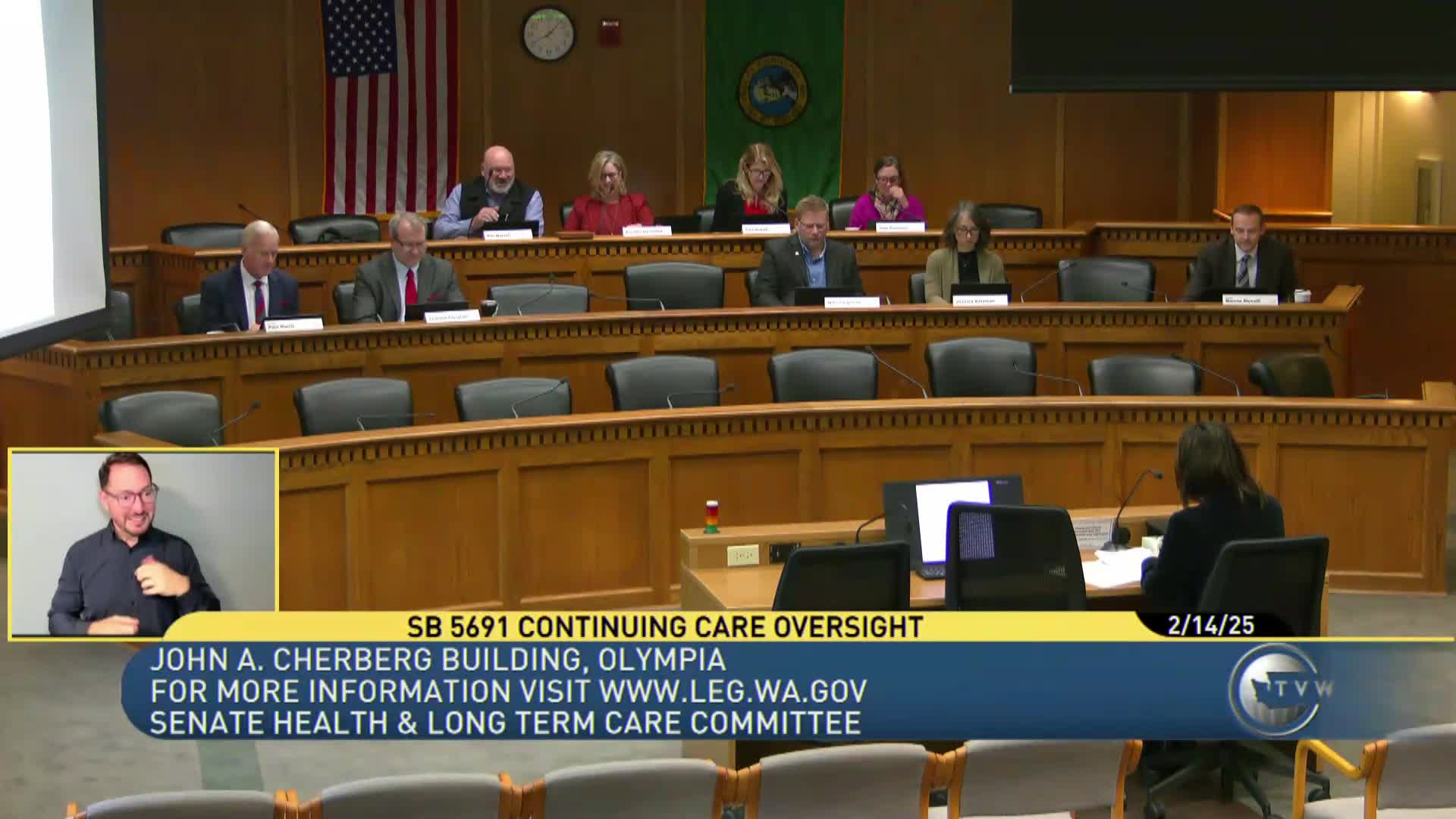
Panel hears bill to create new registration, actuarial review and ombuds for continuing care retirement communities
